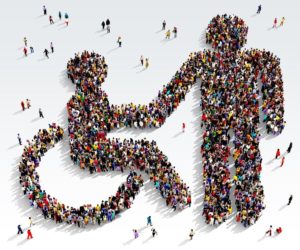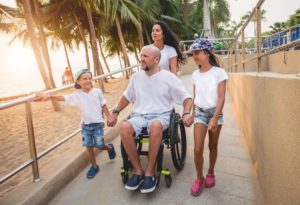
A self-employed person can get disability benefits provided they have paid self-employment taxes. Your taxes include payment into Social Security, which can provide benefits if you are disabled with a qualifying condition.
However, the process for determining eligibility is different for self-employed persons than for regular wage earners. Our Social Security Disability lawyers can evaluate your case for more guidance.
About Self-Employment And Social Security Disability
Eligibility for Social Security Disability Insurance (SSDI) depends on how long you have worked and paid into Social Security. However, you may not know how to access benefits if you are self-employed—such as running your own business or working as a freelancer—since your work and income history differ from other workers.
The Social Security Administration (SSA) has different guidelines for self-employed individuals to ensure a fair evaluation of your case. The most important distinction of the self-employed disability application is the test used to determine if you have engaged in substantial gainful activity (SGA). If the SSA considers your current work SGA, you might not be eligible for benefits.
While other wage earners’ SGA is judged on their monthly income, self-employed workers applying for disability are given what’s commonly called the “three tests” to create a more accurate portrait of their income and level of disability.
The Three Tests For Self-Employed Workers
Identifying if the SSA could consider your work as SGA involves undergoing specific evaluations of your work history, income, and activity. These evaluations determine:
- If you cannot provide significant services to your business
- If you are not earning a substantial income
- Comparing your work history to others in your field and community
- The value of the work you perform while disabled
You are evaluated in these areas even before the SSA tests you to see if you have a qualifying medical condition.
Significant Services And Substantial Income Test
The significant services test determines if the work you provide your business substantially contributes to its operation. For sole proprietorships and one-person businesses, since you are the only one working for the company, the SSA automatically considers your services significant.
If you’re the owner of a business with employees or have a partner, your service is significant if either:
- You contribute over half the time needed to run the business
- You run the business for over 45 hours each month
The substantial income test is similar to the requirements for other wage earners applying for disability. For both, the SSA considers you ineligible for disability if your income is over $1,350 per month as of 2022. However, self-employed persons with income below that threshold could still meet the requirement if:
- You made around that amount before you were disabled
- Your monthly income is similar to others in your field
Comparability Test
As the name suggests, this test compares you to others in your field, using factors like the hours you work, the energy you use, your efficiency, and the duties you perform in your role. In addition, it can highlight how much your disability has affected your ability to work.
Worth Of Work Test
While the comparability test looks at the logistics of your work, the worth of work test assesses the value of your work. Much like the substantial income test, this test looks at how much income your work brings in, comparing it to the income threshold for the year—$1,350 for 2022.
Personal Injury Lawyer Near Me 828.286.3866
Other Disability Requirements For The Self-Employed
The three tests to determine whether your income is SGA comprise the first step in filing for disability as a self-employed person. Next, the SSA will send your application to Disability Determination Services (DDS), which will decide if:
- Your condition is severe
- You have a qualifying disabling condition
- You cannot perform work you did previously
- You cannot do other types of work
If all of the above apply, you could receive disability as a self-employed person.
If Your Self-Employed Disability Claim Is Denied
Unfortunately, due to the complicated filing process for disability benefits, the SSA denies many applications—sometimes for minor errors. However, your first round through the process is not your only chance. Instead, you can appeal your denial.
If you are a self-employed worker who had your Social Security Disability claim denied, don’t delay reaching out for help and miss your appeal deadline. You have options to have your claim reevaluated.
How To Learn More About Self-Employed Disability Benefits
The Social Security Disability lawyers at Farmer & Morris Law, PLLC, can help you complete your disability application or appeal. Even if you are self-employed, you could get disability benefits if you meet the requirements. Contact our office today to schedule a free evaluation.









